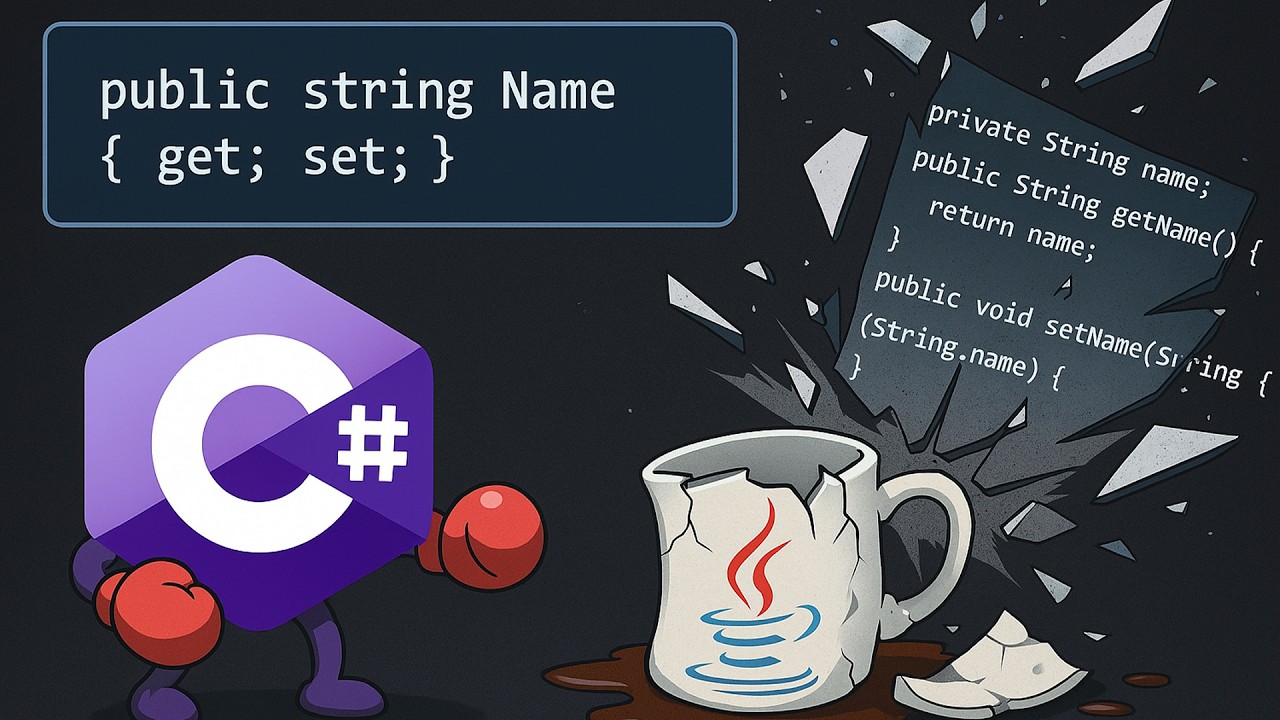The video compares C# and Java, arguing that C# is “Java done right” due to its superior handling of generics, properties, exceptions, and asynchronous programming, which lead to cleaner and more efficient code. While acknowledging Java’s extensive ecosystem and recent improvements, the presenter suggests Kotlin as a modern alternative for developers seeking the best features of both languages.
The video discusses the claim that C# is “Java done right,” a sentiment shared by many developers. The presenter highlights several key differences between the two languages, starting with generics. In Java, generics are implemented through type erasure, which can lead to inefficiencies like boxing primitive types into objects. C#, however, uses reified generics, allowing it to maintain type information at runtime, resulting in better performance without the overhead of boxing.
Another point of comparison is the handling of properties. Java requires developers to create boilerplate getter and setter methods for private fields, which can clutter the code. In contrast, C# offers first-class properties, enabling developers to define properties in a more concise and readable manner. This built-in feature reduces the amount of code needed and enhances clarity, addressing a common pain point for Java developers.
The video also critiques Java’s approach to exceptions, particularly the concept of checked exceptions. While Java enforces that developers catch or declare exceptions, this can lead to messy code filled with try-catch blocks. C# simplifies this by allowing developers to handle exceptions at their discretion, promoting cleaner code that focuses on the core logic rather than exception handling.
Asynchronous programming is another area where C# is seen as superior. Java has introduced CompletableFutures and reactive libraries, but it lacks built-in async and await keywords, which C# provides. This feature allows developers to write asynchronous code in a synchronous style, improving readability and maintainability. Although Java 24 has introduced virtual threads to enhance concurrency, the presenter still favors the clarity of C#'s async/await syntax.
Finally, the video touches on the ecosystems of both languages. While Java boasts a vast ecosystem with frameworks like Spring and Hibernate, C# has a more curated set of tools, especially with the rise of .NET Core. The presenter concludes that while C# does offer improvements over Java in several areas, Java has made significant strides in recent versions. Ultimately, for those seeking the best of both worlds, Kotlin is suggested as a modern alternative, while acknowledging that job opportunities for both Java and C# remain strong.
